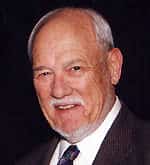 By ANDY ANDREWS
By ANDY ANDREWSLos Alamos World Futures Institute
In the previous column we explored governance in families, businesses, organizations that are subject to some external control, and one global entity that uses agreed governance but without external government control (the Internet). It now is useful to explore government and its role in governance.
Drawing from Wikipedia, government is a system or group of people governing an organized community. If you explore the definition in an array of sources, a precise definition becomes confusing and elusive. For example, there are autocracies, aristocracies, democracies and republics. To make it more complex, for example, there are subcategories such as despotism as well as oligarchies. Going further, there are liberal democracies where the form of government follows the principles of liberalism – a political and moral philosophy based on liberty and equality. Is this governance?
The United States of America is a republic. “I pledge allegiance to the flag of the Unites States of America, and to The Republic for which it stands….” Republic comes from Latin – public matter (res publica) – meaning officers of the state are directly or indirectly elected or appointed. It is also a liberal democracy. Wait, you say, we have liberals and conservatives. These are terms commonly used today, but it is important to examine the Declaration of Independence and the Constitution. “…all men are created equal, they are endowed by their Creator with certain unalienable Rights, that among them are Life, Liberty, and the pursuit of Happiness….” Of course, it took the passage of the 13th Amendment (ending slavery) and the 19th Amendment (women’s suffrage) to get it right, but we are a liberal democracy – our political and moral philosophy is based on liberty and equality of our citizens. We are a liberal democracy as a nation-state, a republic, a county.
Now consider the states, counties, and municipalities in the United States, as well as the federal government. Each has, generally speaking, branches of government: legislative, judicial and executive. Each branch has officials elected or appointed, directly or indirectly, by the people as in a liberal democracy. Citizens of the nation, state, county, or municipality choose the officials who act on their behalf to create the laws and rules (governance) and operate the entity for the people. But what does operate mean?
Consider a fictitious county in a fictitious state somewhere in North America. The citizens elect a county council to direct the county with administrative assistance from a county clerk.
While the council is legislative, it also makes decisions on other things such as roads and grounds. And the council hires a county manager to execute the managerial (executive) functions.
The county manager oversees and/or runs public works (including maintenance), the police, the fire department, health services, operation of the local courts (the judges are elected), county planning, taxation and licensing, parks and recreation, local transit, community development and intergovernmental affairs. Does he or she decide if and where to build a splash pond? No, that is the council’s job or perhaps it is done by the people themselves through an election. The people and the council determine the who, what, when, why and where, while the county manager gets assigned the how.
In some counties there also may be a utilities department with oversight provided by a utilities board, the county manager, or both. This is a business that buys and sells electricity, gas, and water and provides services such as sewage and garbage collection. It may be either a for profit or a not for profit entity depending on decisions of the county council and the business arrangements made. Of course, the model becomes more complicated when states government and municipalities are involved.
And finally there are taxes. Day by day operations, maintenance, infrastructure, and the unpredictable all cost money – the money of citizens. If the cost is high, the citizens apply pressure to the county council and things change (maybe). The decisions and choices are made by the people, directly or indirectly, to sustain and improve the county environment and ensure its peaceful and safe existence. And the people are citizens of the county – people meeting the requirements defined by a county charter.
Viewing government at the county level adds simplicity of understanding. For example, one can exclude security of the nation-state by a military because violent threats from other counties are essentially nonexistent. Government is a combination or governance, operations, and growth. It is both philosophy and business. In a republic it must be based on liberty and equality while ensuring it is for the people.
Till next time….
Till next time….
Los Alamos World Futures Institute website is LAWorldFutures.org. Feedback, volunteers and donations (501.c.3) are welcome. Email andy.andrews@laworldfutures.org or email bob.nolen@laworldfutures.org. Previously published columns can be found at www.ladailypost.com or www.laworldfutures.org.

